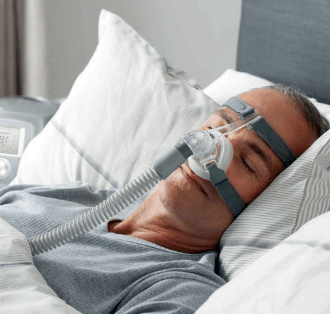Sleep Deprivation
Sleep deprivation is a state caused by loss of quantity or quality of sleep, it can be caused by voluntary or involuntary sleeplessness and circadian rhythm sleep disorders. Children and young adults are most vulnerable to the negative effects of sleep deprivation.
The recommendations for a good sleep durations for specific age groups by the National Sleep Foundation (NSF) 2015 are as follows:
- Newborns (0 to 3 months): 14 to 17 hours each day
- Infants (4 to 11 months): 12 to 15 hours
- Toddlers (1 to 2 years): 11 to 14 hours
- Preschoolers (3 to 5 years): 10 to 13 hours
- School-age children (6 to 13 years): 9 to 11 hours
- Teenagers (14 to 17 years): 8 to 10 hours
- Adults (18 to 64 years): 7 to 9 hours
- Older adults (over 65 years): 7 to 8 hours
Causes:
Sleep deprivation occurs when someone does not get a good amount of sleep. Some people consider sleep as wasted time and intentionally deprive themselves of sleep to pursue other things such as educational goals, entertainment, or moneymaking pursuits. Some people unintentionally spoil their sleep cycling because of shift work, family obligations, or demanding jobs.
Symptoms:
The main symptom of sleep deprivation is excessive daytime sleepiness and the other symptoms include:
- Irritability
- Forgetfulness
- Yawning
- Fatigue
- Moodiness
- Depressed mood
- Clumsiness
- Lack of motivation
- Difficulty learning new concepts
- Reduced sex drive
- Inability to concentrate or a “fuzzy” head
- Increased appetite and carbohydrate cravings
Effects:
Sleep deprivation can have a negative effect on a range of systems in the body. It can have the following impact:
- Sleep deprivation can also cause an increased risk of new and advanced respiratory diseases.
- Loss of sleep prevents the body from strengthening the immune system and producing more cytokines to fight the infections. A person can take longer to recover from illness as well as having an increased risk of chronic illness. A weak immune system can invite diseases.
- Lack of sleep can also affect your body weight. Two hormones in the body, leptin, and ghrelin. The levels of these hormones are affected by the sleep. Sleep deprivation causes the release of insulin, which leads to increased fat storage and a higher risk of type 2 diabetes.
- Sleep helps the heart vessels to heal and rebuild as well as affecting the processes that maintain the blood pressure and sugar levels as well as the inflammation control. Not sleeping enough increases the risk of cardiovascular disease.
- Loss of sleep can also affect hormone production, including growth hormones and testosterone in men.
Treatments:
Treatment is required only when a person physically cannot get to sleep, due to either the physical or psychological difficulties.
- Behavioral and cognitive treatments- it has three effective methods they are
- Relaxation techniques
- Stimulation control
- Cognitive behavioral therapy
- Medication- When non-medicinal treatments are not effective, then drugs are available that can help to induce sleep. Some are available easily over-the-counter (OTC), and some are only available with a valid prescription.
Stay Healthy, Sleep peacefully!!




